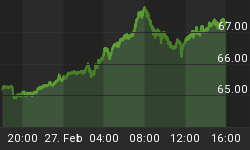It’s one thing when a cutting-edge company like Tesla Inc. is unable to meet its delivery targets due to automation challenges at its gigafactory. It’s another when pot companies struggle to get enough product to the market because of relatively trivial issues like tax stamps. Canada was supposed to be the trailblazer that provided a blueprint for the likes of the U.S. to follow for their own burgeoning pot industries when the country legalized recreational marijuana last October. Yet, one pesky stamp has become the bane of pot companies in the country-- and also in the U.S.--limiting their ability to deliver enough product to the markets.
Six months after the issue was first reported, pot producers are still struggling with an excise duty stamp that often comes with no glue, thus frustrating efforts to automate and modernize their plants.
Pesky stamp
Take the case of Organigram Holdings Inc. (TSX:OGI), a Canadian pot producer that has figured how to automate its production chain. Yet, Organigram could not prevent its stock tanking nearly 10 percent on Monday even after posting a rather impressive near-700 percent revenue increase.
During its latest earnings call, the New Brunswick-based company revealed to shareholders that the biggest hurdle it faces has got nothing to do with growing enough marijuana but rather the packaging challenges it faces trying to manually apply excise duty tax stamps to raw marijuana containers.
The company says it has nearly $30 million worth of dried cannabis in its stores, significantly more than $26.9 million it realized from sale of the product last quarter, due to the stamp complications.
Consequently, the company has been forced to expand its in-house capabilities and hire extra staff to meet its targets.
Related: Can Meditation Make A Business More Profitable?
With its automated facilities, Organigram is able to produce 40,000 pre-rolled joints and has more than 2.6 million in stock. The company’s sales were only second to Canopy Growth’s (TSE:WEED), widely regarded as the industry leader.
To sell any marijuana products in Canada, pot companies are required by the authorities to affix a tax stamp on the package. However, stamps are only available from a single licensed vendor, the CBNC (Canadian Bank Note Company Ltd). To producers’ dismay, the stamps often come with no glue, and they have to contend with the fact that only one company in Canada can remedy the situation i.e. by adding the glue.
Fragile networks
Organigram is far from being the only company facing the stamp challenge. Back in the US, pot majors such as Tilray Inc.(NASDAQ:TLRY) and Aurora Cannabis (NYSE:ACB) have also brought up the pesky stamp problem.
The bizarre bottleneck is clear demonstration of the still fragile distribution networks by pot companies. It’s apparent that the sector failed to anticipate several quirky supply-chain issues in what at first blush appears a relatively straightforward supply chain. After all, you are getting only a single plant species to the market.
Once it gets in full bloom, however, no-glue tax stamps are likely to be the least of problems for cannabis companies.
The multi-billion dollar industry is set for huge increase in product SKUs across diverse categories; from cannabis-infused chocolates, candies and topical lotions to extracts and equipment for growing plants on micro-scales.
These happen to be the fastest-growing categories according to a recent report by the Procurement trade publication Spend Matters. Rapidly changing tastes will also require these companies to be responsive enough and able to re-tool their factories in a dime. For instance, Cannabis oils are no longer as hot as they were a few years back, with demand shifting to products derived CBD-based products.
By Alex Kimani for Safehaven.com
















